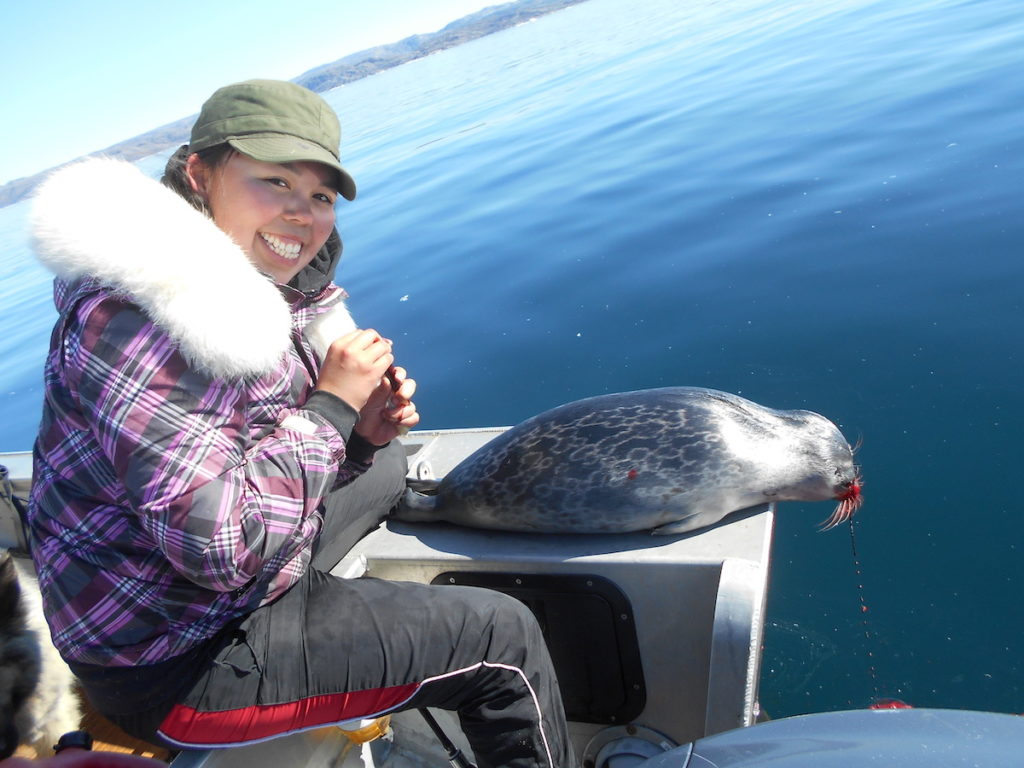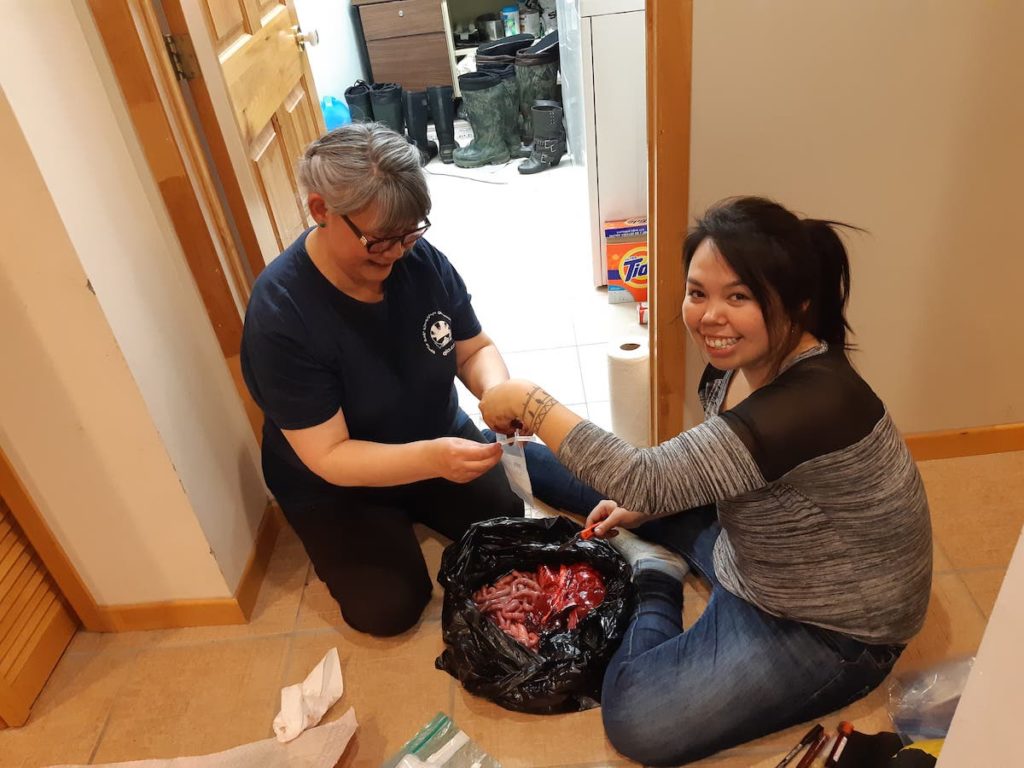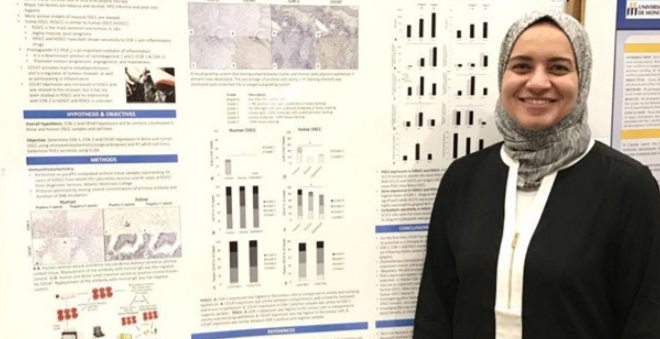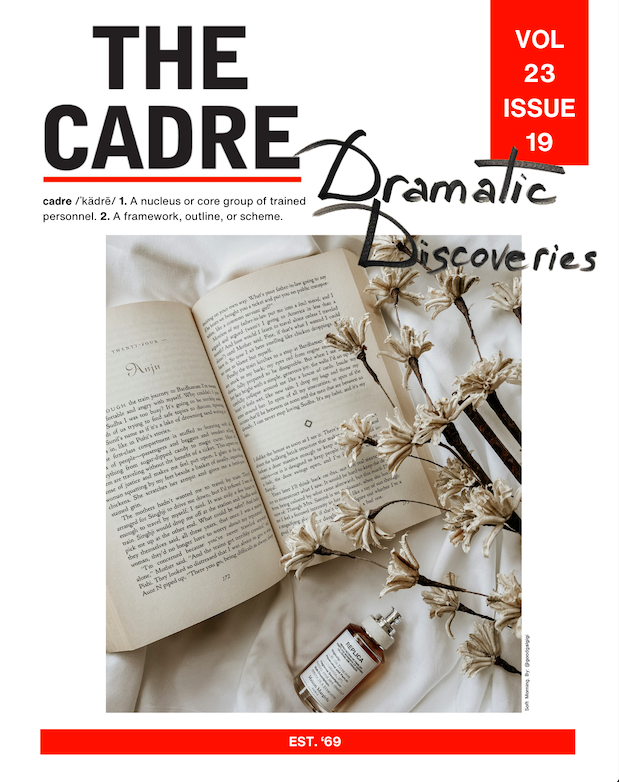Here’s how this UPEI student is incorporating Indigenous knowledge into Western science methodologies
âš ï¸ Content warning: This article contains graphic images which may be upsetting to some readers.âš ï¸
By: Allison O’Brien

Iqaluit native and UPEI Master of Science student Enooyaq Sudlovenick sits in her office at the Atlantic Veterinary College where she is combining Indigenous and Western science methods to research the health of ringed seals. (Photo by Allison O’Brien)
Enooyaq Sudlovenick knows how important the health of ringed seals is for life in the north.
The Iqaluit native grew up eating seal in a small Inuit community located in northern Baffin Island. Now, Sudlovenick is at UPEI researching the prevalence of heavy metals and disease in seals that are a result of climate change.
“In Nunavut, we eat a lot of seal, it’s a part of our everyday diet. Because we eat it, we want to make sure the food source is good to eat.”
For her master’s degree, Sudlovenick travelled back home to Iqaluit to collect blood and tissue samples from seals to be tested for diseases and toxins such as heavy metals.

For her master’s degree, Sudlovenick travelled back home to Iqaluit to collect blood and tissue samples from seals to be tested for diseases and toxins such as heavy metals. The seal carcasses were returned to hunters to be used as food. (Submitted photo)
Part of the research project includes incorporating Inuit Qaujimajatuqangit, otherwise known as Indigenous knowledge of the Inuit or Inuit IQ, into Western scientific methodologies.
“Using Inuit IQ to study seals means looking at everything about the seal, including its cultural context, the behaviour, ecology, and the health. It’s more than just the animal, it’s everything about the animal.”
Sudlovenick says there are many ways to incorporate Inuit IQ into Western scientific research, including looking at local knowledge and concerns, collecting observations that have been passed down through generations, and taking into account work that the Inuit want to see done.

“Inuit IQ is based on observations over long periods of time. It’s knowledge that is passed down through generations, and it’s always evolving, kind of like how Western science is always evolving and changing,” says Sudlovenick. (Submitted photo)
While Northern research has already begun shifting towards incorporating Inuit IQ, Sudlovenick says the process has been a little different at UPEI.
“Sometimes it feels weird presenting your work, and people who are heavily engrained in Western scientific methodologies don’t understand why you’re incorporating Indigenous knowledge. You just have to put your foot in the door and say this is important for these reasons.”
“You take on more work by trying to educate those who don’t know about these things, but that is the responsibility of an Indigenous researcher,” says Sudlovenick.









